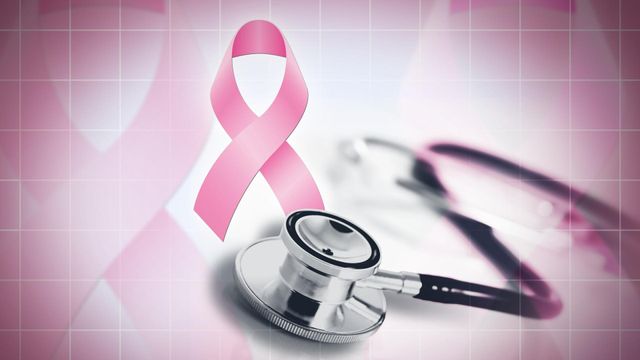Breast cancer striking women at younger age
Women with a gene mutation for breast cancer are getting the disease at an increasingly younger age, according to new research.
Posted — UpdatedOnce she was diagnosed with breast cancer, Kelly McSpirit Hanlon chose to take tests that showed she has the breast and ovarian cancer gene called BRCA-1.
"It's not the news you want to hear, especially when you have two sisters, a mother, a daughter and a niece," Hanlon said.
Women with BRCA-1 have a 60 percent risk of developing breast cancer, compared with the 12 percent risk for women overall. An estimated 5 to 10 percent of women diagnosed with breast cancer carry the gene mutation.
Hanlon's younger sister doesn't have the gene, but other sister, Laura McSpirit Grier, does. Hanlon and Grier both elected to undergo a double mastectomy and have their ovaries removed.
"I wasn't going to sit around and wait for cancer to get me. I said, 'You know what, I'm getting you first,'" Grier said.
A new study of women with the BRCA gene shows that each subsequent generation of carriers seems to be getting cancer earlier than the previous one.
"The age moved down by about 7.9 years from one generation to the next, and that is a significant age gap," said Dr. Freya Schnabel, with New York University's Langone Medical Center.
Hanlon said her family appears to be following that pattern.
"It makes sense, because my aunt on my father's side, she received breast cancer in her 50s. I was in my 40s. My cousin, her daughter was in her 30s," she said.
Doctors recommend that women with the gene get screened at a younger age than normal.
"Women who know they have a BRCA 1 or 2 mutation, they should begin to be screened approximately 10 years younger than the age of diagnosis of the closest relative" with breast cancer, Schnabel said.
Hanlon and Grier both have daughters who they hope will learn if they have the gene, once the girls are old enough to make the decision about testing on their own.
"I know, I'm just assuming she has it. I'd rather know for sure," Hanlon said.
Copyright 2024 by Capitol Broadcasting Company. All rights reserved. This material may not be published, broadcast, rewritten or redistributed.





